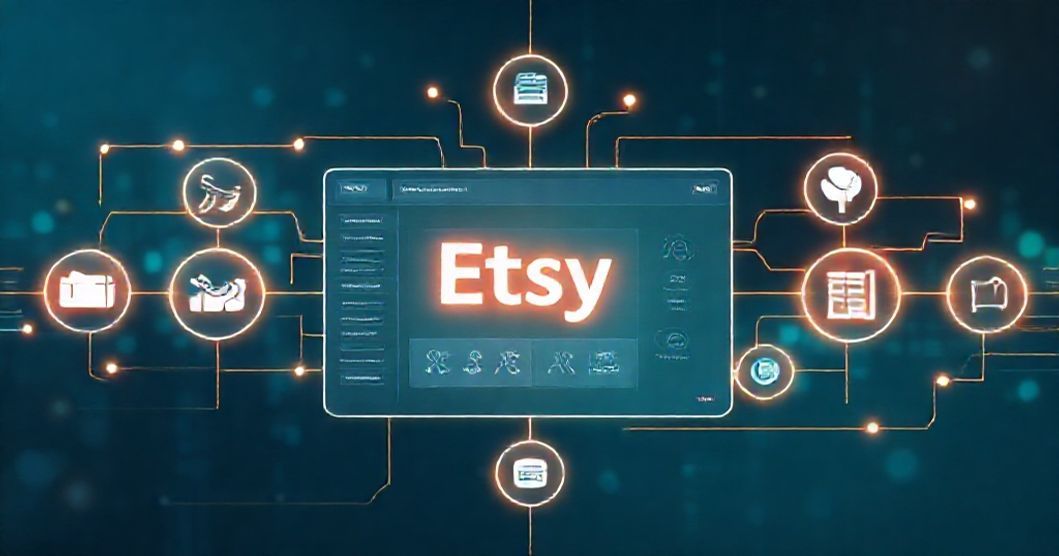Etsy has become a vibrant marketplace for unique handmade and vintage goods, attracting millions of sellers worldwide. As businesses grow, managing an Etsy store can become complex, requiring significant time and effort for tasks beyond creation. Strategic Etsy integrations provide a powerful solution, connecting your shop with external tools and platforms to automate processes, enhance efficiency, and foster sustainable growth. Understanding and implementing these integrations is crucial for streamlining operations and maximizing profitability in a competitive e-commerce landscape.
Understanding Etsy Integrations for E-commerce Success
Etsy integrations involve connecting your Etsy shop with third-party software applications, services, or other e-commerce platforms. This connectivity is typically achieved through an Application Programming Interface (API), allowing different systems to communicate and exchange data seamlessly. The primary goal of these integrations is to automate repetitive tasks, consolidate data, and provide sellers with advanced functionalities not inherently available within the basic Etsy seller interface. This approach transforms a manual workflow into an automated ecosystem, freeing up valuable time for creative endeavors.
Streamlining Inventory Management Across Channels
Effective inventory management is paramount for any online seller, especially when selling unique or limited-edition items. Inventory management integrations allow Etsy sellers to synchronize stock levels across their Etsy shop and any other sales channels, such as a personal website or other marketplaces. These tools prevent overselling by automatically updating quantities in real time whenever a sale occurs on any platform. This centralized control reduces manual errors, saves considerable time, and ensures a consistent customer experience, leading to higher customer satisfaction and fewer order cancellations.
Automating Shipping and Fulfillment Processes
Shipping logistics can be one of the most time-consuming aspects of running an Etsy shop. Shipping integrations connect your Etsy store directly with various shipping carriers or fulfillment services. These tools automate label generation, provide real-time tracking information to customers, and often secure discounted shipping rates, directly impacting your bottom line. Batch processing orders and automatically notifying customers of shipping updates drastically reduce manual workload, allowing sellers to focus more on product creation and customer engagement rather than administrative tasks.
Integrating for Accurate Financial Tracking and Accounting
Managing finances is a critical but often daunting task for small business owners. Accounting integrations link your Etsy sales data directly with popular accounting software. This connection automates the recording of transactions, categorizes expenses, and generates essential financial reports with minimal effort. Sellers can track profitability, manage taxes more efficiently, and gain clearer insights into their business’s financial health. Such integration ensures accuracy in financial records and simplifies tax preparation, contributing to overall business stability and informed decision-making.
Enhancing Product Offerings with Print-on-Demand Integrations
For many Etsy sellers, print-on-demand (POD) integrations open up new avenues for product diversification without the need for upfront inventory investment. These integrations connect your Etsy shop with POD service providers, allowing you to design and sell custom products like apparel, mugs, or home decor. When a customer places an order, the integration automatically sends the order details to the POD partner, who then prints, packages, and ships the item directly to the customer. This model minimizes risk and expands your product catalog effortlessly.
Expanding Reach Through Multi-Channel Selling Integrations
While Etsy provides a dedicated marketplace, many sellers choose to expand their reach by selling on multiple platforms or through their own independent website. Multi-channel selling integrations are designed to centralize product listings, inventory, and order management across all these diverse sales channels. This ensures consistency in product information and pricing, prevents inventory discrepancies, and allows sellers to manage all their orders from a single dashboard. Such integration is pivotal for scaling an online business and reducing operational complexities.
Optimizing Marketing and Customer Relationship Management (CRM)
Building strong customer relationships and executing effective marketing strategies are vital for long-term success. Marketing integrations connect your Etsy shop with email marketing platforms, social media scheduling tools, or CRM systems. These integrations can automate email campaigns based on customer purchase history, schedule product promotions, and track customer interactions. By centralizing customer data and automating outreach, sellers can cultivate loyalty, encourage repeat purchases, and efficiently manage their marketing efforts, fostering sustainable brand growth.
Analyzing Data for Informed Business Decisions
Access to comprehensive data and analytics is key to understanding business performance and making strategic decisions. While Etsy provides some analytics, integrating with advanced analytics tools can offer deeper insights into sales trends, customer behavior, and product performance. These integrations consolidate data from Etsy and other platforms, providing a holistic view of your business. Understanding which products perform best, identifying peak sales periods, and recognizing customer preferences empowers sellers to optimize their strategies for increased profitability and efficiency.
Considerations for Choosing the Right Etsy Integrations
Selecting the appropriate Etsy integrations requires careful consideration of your specific business needs, current workflow, and future growth aspirations. Evaluate the cost-effectiveness of each tool, considering its monthly fees versus the time and money it saves. Assess the ease of use and the level of customer support provided by the integration partner. Ensuring compatibility with your existing systems and understanding the security protocols for data exchange are also critical factors in making informed decisions that align with your business objectives and operational requirements.
Conclusion: Empowering Your Etsy Business with Strategic Integrations
Etsy integrations are not merely add-ons; they are essential tools for modern e-commerce sellers striving for efficiency, scalability, and sustained growth. By thoughtfully integrating various aspects of your Etsy business—from inventory and shipping to accounting and marketing—you can significantly reduce manual workload, minimize errors, and free up valuable time. Embracing these technological solutions empowers sellers to focus on their creative passions, enhance customer satisfaction, and build a robust, profitable online enterprise that is well-prepared for future challenges and opportunities in the dynamic e-commerce landscape.




